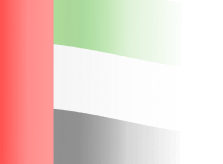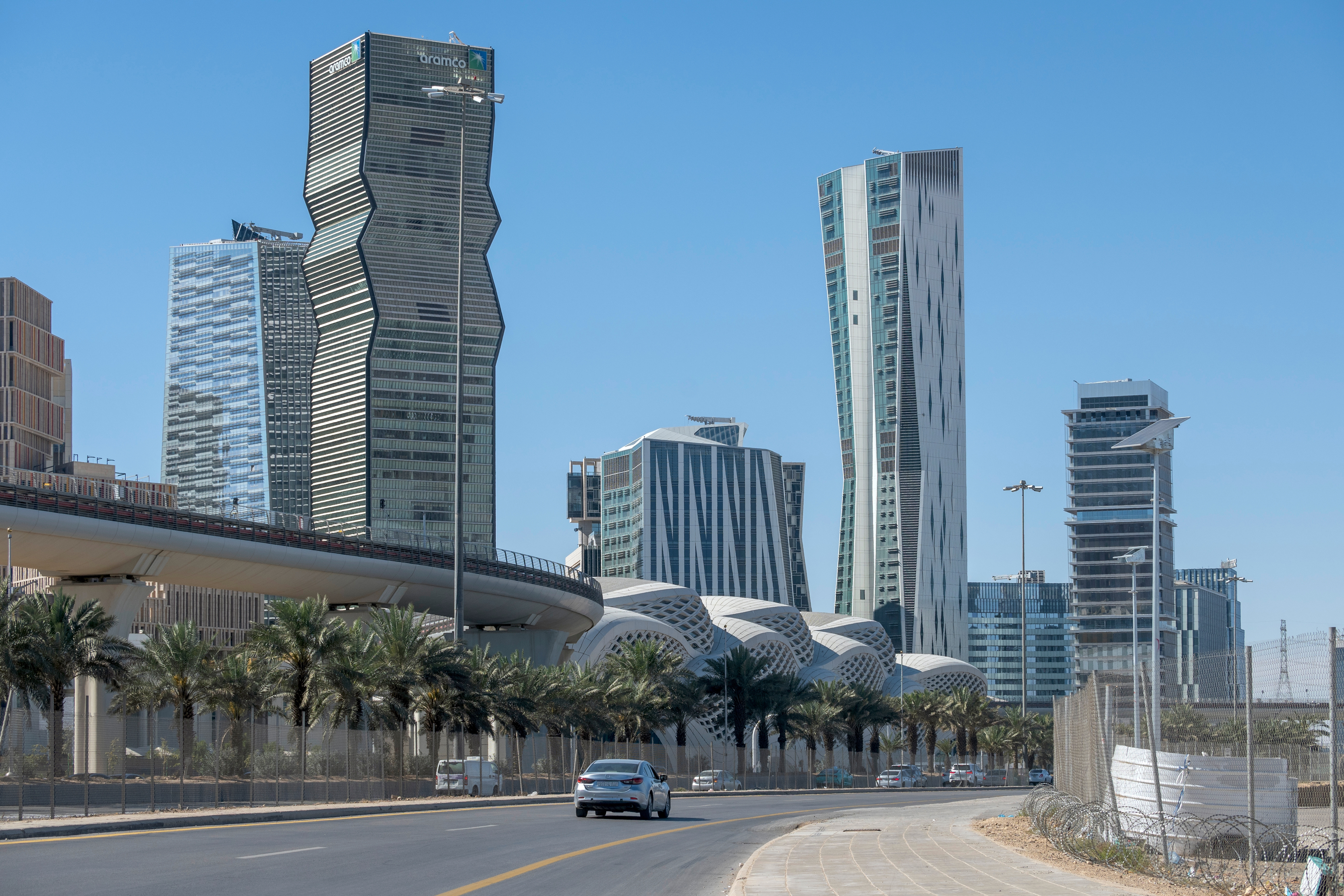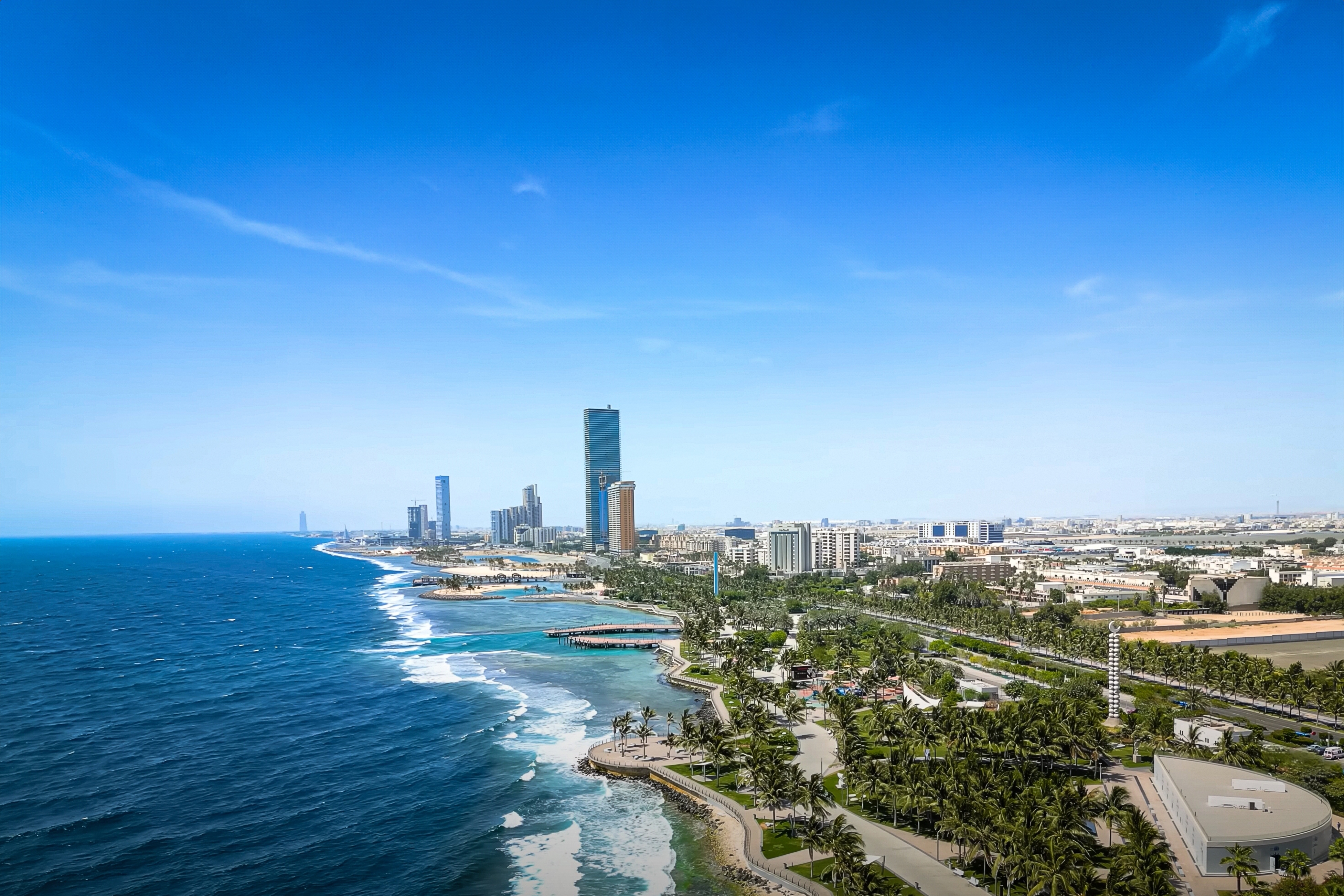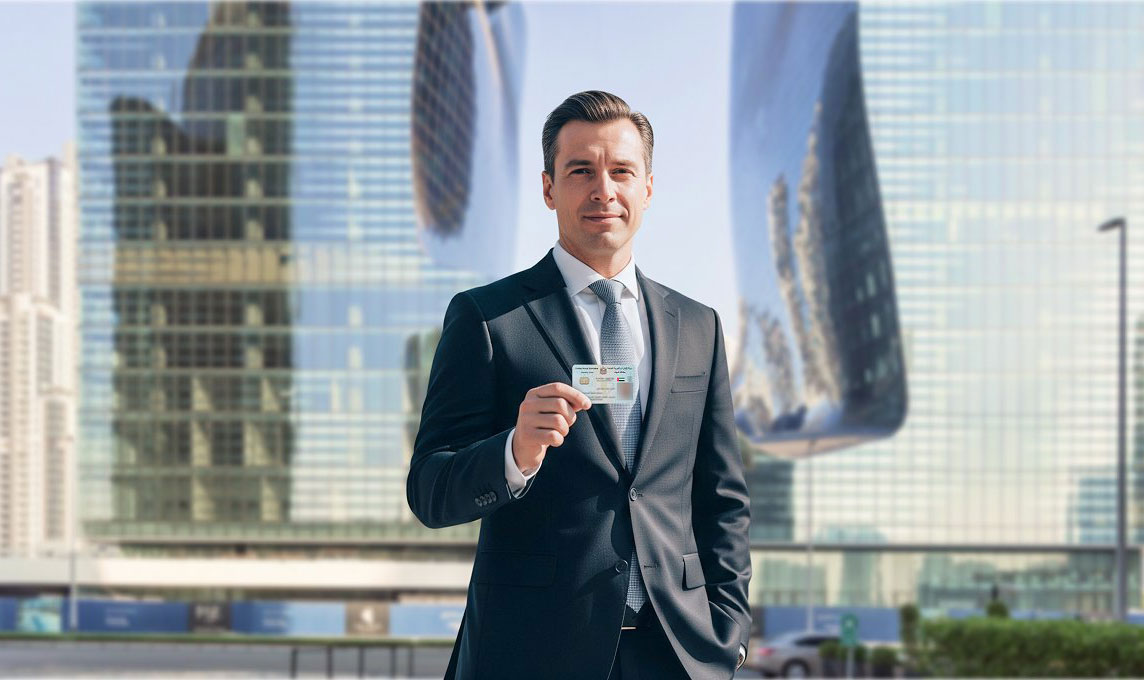Saudi Arabia and the UAE are two neighboring states in the Middle East with much in common. Despite their similarities, there are significant differences between the two countries, beginning with their state systems. Saudi Arabia (SA) is a unitary absolute monarchy based on Islamic law, or Sharia. The UAE has a federal structure, and each emirate is considered a separate state.
The two countries differ somewhat in terms of their economies, business environments, and populations’ lifestyles. However, both countries have recently become attractive to businesspeople and investors worldwide due to their favorable tax systems, infrastructure development, innovation implementation, and entrepreneurship support. Read on for more information about the similarities and differences, standard of living, education, business, and taxes in the UAE and SA.
The economies of Saudi Arabia and the UAE
The two countries’ economies are similar in many ways. Both are based on oil exports and are located in the same geographical area. In recent years, both countries have paid maximum attention to technological development. Despite their past territorial dispute, which has strained relations between the two countries, they are now actively selling their goods to each other.
However, there are still significant differences between the two countries. Saudi Arabia’s area is almost 26 times that of the UAE, its population is about 3.5 times larger, and its oil reserves are much more significant. Nevertheless, the UAE is much more popular for recreation, work, and investments.
Foreigners who choose the UAE to do business receive the most favorable conditions in terms of taxation and access to developed local infrastructure and the international market. Entrepreneurs can obtain a residence permit based on their business activities and move to a comfortable and safe country.

Saudi Arabia: an oil-based economy driven by innovation
The Kingdom of Saudi Arabia (KSA) has one of the world’s most powerful economies, ranking 19th worldwide and 6th in Asia in terms of GDP. It has the second largest proven oil reserves and is the largest exporter, as well as one of the founders of OPEC. About 40% of the gross domestic product comes from the production and export of “black gold.” Serious price fluctuations could significantly affect the national economy. However, many years of oil wealth have enabled the accumulation of a substantial sovereign wealth fund, providing economic stability.
Global trends are pushing Saudi Arabia to transform its economic landscape and social norms. In recent years, the country has undergone a major technological transformation. Significant funds are going toward updating the digital infrastructure and spreading 5G networks throughout the country. The NEOM project aims to create technologically and environmentally sustainable “smart cities” that improve quality of life and stimulate economic growth.
KSA’s notable achievements in artificial intelligence and robotics have specific applications in medicine, finance, logistics, and manufacturing. One of the key areas of technological development in Saudi Arabia is renewable energy. National program projects aim to supply over 15 TWh of electricity from solar and wind power plants. With the country’s total consumption at 146 TWh in the first half of 2024, this accounts for approximately 10%.
The country actively promotes entrepreneurship development. Support programs for innovative and technological startups have been introduced. These efforts help diversify the economy and reduce oil dependence.
The UAE: the finance and trade hub of the Middle East
Its financial industry is comprised of both domestic (86.5%) and foreign (13.5%) banks. Today, these institutions’ total assets in the UAE amount to USD 813 billion, putting the country in first place in the Middle East region. Many foreigners choose to open an account in the UAE because local banks are distinguished by a high level of asset security, confidentiality, and customer service. The UAE is also home to three major stock exchanges.
Since 2004, the Dubai International Financial Centre (DIFC), a free economic zone (FEZ), has offered entrepreneurs and investors contract security, its own court based on English law, 100% business ownership, and a lenient tax regime. Due to its advantageous geographical location between East and West, the DIFC is one of the world’s largest financial centers and has registered over 2,000 companies from various countries. Permitted activities include insurance, capital and asset management, and brokerage services.
The Abu Dhabi Global Market (ADGM) is a financial center for local, regional, and international institutions. It has developed a progressive legal and regulatory framework, creating a favorable business environment. Some of the world’s largest sovereign wealth funds, venture capitalists, asset managers, and consulting companies are registered in ADGM.
The UAE economy is one of the top 15 largest in the world in terms of export trade, and it is the largest in the Middle East. The country’s favorable location allows 33% of the world’s population to reach the UAE in less than four hours and 66% in less than eight. According to the latest data from the World Trade Organization, the total annual trade volume of goods and services in the Emirates amounted to USD 1.21 trillion.
The Dubai Multi Commodities Centre (DMCC) has been named the world’s best free zone for nine consecutive years: most foreigners planning to do business in Dubai choose this free economic zone (FEZ). DMCC attracts up to 15% of all foreign direct investment coming into the emirate. The DMCC’s multifunctional complexes accommodate up to 100,000 employees and visitors.
Thanks to the development of the financial sector and trade, the UAE’s dependence on the oil and gas sector is decreasing; however, its share of the GDP remains high at about 30%. Nevertheless, high oil prices have enabled the government to establish an impressive sovereign wealth fund capable of supporting the economy in the event of fluctuations in the hydrocarbon market.
UAE residence permit through company registration:
- A UAE residence permit allows;
- Living in a country with a developed economy;
- Opening accounts in reliable banks;
- Doing business in the UAE;
- Simplified visa processing for Schengen countries and the USA.

Leave an application and get a consultation specialist
Standard of living: Saudi Arabia vs UAE
Those who are not very interested in the Middle East sometimes ask: Are Saudi Arabia and the UAE the same country or different?” While they are similar, they are also different in many ways, including their standard of living. This can be seen in the UN Human Development Index, which ranks countries based on wealth, life expectancy, and population education. Saudi Arabia ranks 40th, while the UAE ranks 17th. In terms of security, Saudi Arabia is 14th, and the UAE is second out of 146.
A key indicator of a country’s standard of living in the modern world is the quality of internet access. According to the global Speedtest Index, the UAE is a leader in both mobile internet and fixed broadband. Saudi Arabia ranks eighth out of 111 for the former, but is far behind for the latter, ranking 45th out of 161.
The healthcare indices for these countries are as follows: The UAE has 70.75 points and KSA has 61.59 out of 100 possible points. At the same time, the cost of medical services in both countries is considered moderate. Staff skills, competence, and politeness in the UAE received a high rating, while in Saudi Arabia, they were moderate. Both countries have high-level modern equipment and diagnostic and treatment methods.
The traditions and lifestyle of Saudi Arabia
Islam is the foundation of Saudi Arabian traditions, influencing the way of life, worldview, and behavior of Arabs. For instance, punishments for criminal offenses are assigned according to Sharia law. The same religious laws require that premises and events be separated by gender. Arabian women are required to wear black, closed clothing and cover their hair with a hijab or wear a niqab, which leaves only the eyes exposed. Islam strictly prohibits consuming pork or alcohol. Bread and rice are mandatory products on the table. Every Muslim is required to perform five prayers a day.
However, in the context of globalization, the government is making some exceptions to its laws. For example, women’s rights regarding employment and education have significantly expanded in recent decades. In 2024, an unprecedented decision was made to open the country’s first alcoholic beverage store. However, it is intended exclusively for foreign diplomats. Foreign women are not required to wear a headdress at all times; wearing an abaya, a closed dress, is sufficient.
The standard of living in the KSA can be assessed by comparing the population’s income and expenses. According to Numbeo, a crowdsourced website, a family of four spends SAR 10,800 (USD 2,875) per month, while a single Saudi spends SAR 3,030 (USD 807). However, these figures do not include rent. The average monthly rent is presented in the table below:
| Location | 1-bedroom apartment, $ | 3-bedroom apartment, $ |
|---|---|---|
| In the city center | 460 | 859 |
| Outside the city center | 363 | 594 |
The average price per square meter in the city center is around USD 1,700, while outside this area, it is around USD 1,117. Utilities for an 85 m² room will cost about USD 110 per month, assuming no need for heating. About USD 35 is spent on mobile communications and about USD 72 on the internet.
The average worker’s salary after taxes is around USD 2,230. The official minimum wage is SAR 4,000 (USD 1,065).
The standard of living in the UAE
To assess the standard of living in the UAE, we will use data from Numbeo. The approximate average monthly expenses for a family of four are AED 12,542 (USD 3,415), and for one person, AED 3,620 (USD 985.5). Average monthly rental costs:
| Location | 1-bedroom apartment, $ | 3-bedroom apartment, $ |
|---|---|---|
| In the city center | 1 577 | 3 061 |
| Outside the city center | 1 119 | 2 174 |
The cost per square meter for an apartment is USD 5,454 in the city center and USD 3,531 outside the city center. Utilities for an 85 m² apartment without heating cost around USD 184, while mobile communications cost USD 60 and internet costs USD 100.
The average salary in the UAE is USD 3,384. There is no officially established minimum wage in the Emirates; the federal labor law contains only general instructions that the wage should satisfy workers’ basic needs.
Since many immigrants live in the UAE, its traditions are more liberal than those of many other Arab countries. While women are not required to wear an abaya or hijab, modesty is expected, meaning they should avoid revealing outfits and tight clothing and cover their knees and shoulders.

Business and investment opportunities in the Gulf
Saudi Arabia and the United Arab Emirates offer broad business and investment opportunities as part of their programs to diversify their economies and reduce their oil dependence. The countries use similar tools for these purposes, such as free economic zones. However, the terms are very different: the UAE is much more open to foreign investors and businesspeople.
Doing business in Saudi Arabia
As part of the Vision 2030 program, the Kingdom of Saudi Arabia is carrying out economic reforms that create new business opportunities and stimulate economic development. The Saudi Business Center (SBC) was established to facilitate enterprise registration and the successful launch of business activities. The SBC improves the quality of government services for entrepreneurs, reduces the time it takes to provide them, and lowers the costs.
Small and medium-sized businesses are particularly important because they ensure sustainable economic development, job creation, and the introduction of innovations and advanced technologies. In the KSA, Monshaat, the General Authority for Small and Medium-Sized Businesses, operates with the following functions:
- Administrative and technical support for enterprises;
- Facilitating access to purchases from large companies and government partners;
- Providing business training to entrepreneurs on growth and development programs to improve administrative, financial, and technical competencies;
- Electronic consulting for small and medium-sized business owners in all cities and provinces of the country;
Monshaat has created an expense calculator for beginning entrepreneurs, which allows them to calculate taxes and the break-even point of an enterprise.
As part of diversifying the economy, Saudi Arabia is interested in developing production, technology, and tourism, as well as attracting foreign investment. The country has established five free economic zones. These zones provide tax incentives, including the abolition of VAT and a reduction in corporate tax to 5%. These zones allow 100% foreign ownership and permit the repatriation of profits to other countries without paying taxes.
UAE free zones and offshore business options
The UAE offers investors more than 40 multidisciplinary free economic zones (FEZs). These zones are distinguished by their highly efficient organization and the various services they provide to facilitate smooth workflows and save time and effort. FEZs aim to attract foreign businesspeople and investors to the country. These individuals can enjoy the following benefits:
- 100% ownership without a local partner or sponsor;
- 0% corporate and income taxes;
- A developed business community;
- Full capital and profit withdrawal abroad;
- Fast company registration;
- Independent laws and regulations;
- Easy access to regional and global markets;
- Exemption from customs duties;
- Developed, modern infrastructure.
Among the available FEZs, you can find one suitable for your business. For example:
- Dubai Production City (for media companies);
- Sharjah Publishing City (for publishers);
- Dubai Design District (a FEZ dedicated to fashion and art);
- Dubai CommerCity (an e-commerce zone);
- Dubai Healthcare City, where various medical centers are located; and several other free zones in different areas.
Three free zones allow offshore registration: the Jebel Ali Free Zone (Dubai), the RAK Investment Authority Free Zone (Ras Al Khaimah), and the Ajman Free Zone (Ajman).
Favorable business climate attracts entrepreneurs from all over the world. Therefore, UAE authorities offer business owners an appropriate residence permit, allowing them to develop their business in a promising environment and move to a developed country.
iWorld lawyers can help you register a company and obtain a .
Education and career prospects
These two countries have similar strategic goals and areas of focus in education within the framework of a common idea: developing technology and innovation. Each country has developed its own specific solutions and provides a wide range of educational opportunities. However, a specialist’s career and income still depend on his own efforts, experience, and practical skills, no matter how cliché it may sound.
Education and jobs in Saudi Arabia
In recent years, Saudi Arabia has fundamentally changed its approach to education and careers. The main goal is to develop competitive specialists who meet the needs of the labor market. In practice, universities have doubled the number of applicants admitted to specialties such as healthcare, technology, engineering, and business administration, as these professionals are needed by the national economy. Conversely, the number of students admitted to less popular fields, including the humanities, is decreasing.
Considering the alignment of education with the needs of the labor market, a ministerial commission approves scholarship payments. Much attention is given to the practical training of specialists. It is believed that a diploma is meaningless without the appropriate experience and skills. The Ministry of Education is concluding agreements with leading local and foreign enterprises to provide internships for university students, with a minimum duration of six months during their studies.
The Saudi Arabian government allocates scholarships annually for undergraduate studies at public universities, which both Arabs and citizens of other countries can apply for. In general, the admission requirements for foreigners are the same as those for local residents, but there are also special ones. For example, applicants must be between 17 and 25 years old and have permission to study in the Kingdom of Saudi Arabia (KSA) from their country of origin.
Tuition at private Saudi Arabian universities ranges from SAR 32,000 to SAR 90,000 (USD 8,500 to 24,000) for a bachelor’s degree and from SAR 70,000 to SAR 200,000 (USD 18,600 to 53,300) for a master’s degree. These are approximate figures. For more accurate information, contact the university directly.
Local companies are in greatest need of IT specialists, recruiters, lawyers, and logistics specialists. For instance, programmers in Saudi Arabia earn an average of SAR 17,000 (USD 4,500) per month. Managers in Riyadh can expect to earn between SAR 17,000 and 35,000 (USD 4,500 and 9,300). Pay primarily depends on work performance, which applies to both women and men. In fact, mentioning gender in a job description can result in criminal liability.
Education and career growth in the UAE
The UAE government allocates an annual percentage of the federal budget to education, ranging from 13 to 20%. The industry’s goals for the near future are:
- Supporting lifelong learning programs;
- Maximizing the implementation of modern technologies and innovations in the educational process;
- Ensuring the best educational practices and modern curricula.
The UAE education system is being reformed to reflect the current state of the labor market. Due to technological development, some professions are disappearing while others are arising over a short period of time. To prepare future workers for these changes, the following programs are being introduced:
- Professional and practice-based training
These programs are designed for students from grade 9 to the final year of higher education. The program allocates maximum time for students to gain practical experience through internships at specific enterprises.
- Entrepreneurship development environment
Entrepreneurship, in general, and the development of small and medium-sized businesses, in particular, are important for diversifying the economy. To this end, the SkillUp program exists; one of its subcategories aims to teach the necessary skills to create and manage companies. It is intended for students in grades 8–12 and current owners of microenterprises. Within its framework, there are startup idea competitions, internship opportunities, and scholarship programs.
- Skills of the future
This program focuses on preparing young people for future job market demands, including the need for constant professional development or complete career changes. The program pays attention to training young people in areas such as artificial intelligence, robotics, automation, advanced manufacturing, virtual and augmented reality, databases, and data analysis. Future specialists are also taught problem-solving, interpersonal communication, and critical thinking skills.
In the UAE, the Ministry of Education and other government agencies, such as the Office of the President, the Telecommunications and Digital Technologies Regulatory Authority, and the Ministry of Finance, award scholarships for education. Funds are allocated for talented students to attend local and prestigious foreign universities. Foreign citizens are permitted to enroll in public and private educational institutions in the UAE through scholarship programs, provided they comply with the rules for foreigners staying in the country.
Tuition at UAE universities is calculated per credit. One credit is equivalent to approximately 30 academic hours, including lectures, practical classes, and independent study. Obtaining a bachelor’s degree requires 180–240 credits. At the University of Abu Dhabi, for example, the cost per credit for a bachelor’s degree ranges from AED 1,230 to AED 1,985 (USD 332 to USD 536), depending on the specialty. Additionally, there are expenses for application fees, registration, housing, transportation to the university, textbooks, medical services, and passing an English exam.
The most in-demand professions in the Emirates today are doctors, scientists, engineers, IT specialists, accountants, heads of commercial enterprises, and managers. Salary depends on work experience and specialty. For instance, an experienced cardiologist earns an average of AED 90,000 (USD 24,500) per month, an anesthesiologist earns AED 43,800 (USD 12,000), and a software developer with 2–4 years of experience earns around USD 10,000.
Taxation and investments: UAE vs Saudi Arabia
To make an assessment, one should look at the volume and dynamics of foreign financial contributions in each country. Saudi Arabia and the UAE differ significantly in this regard. According to the latest data, the net inflow of foreign investment into the Saudi Arabian economy amounted to about USD 7.89 billion, which is more than 11 billion less than the previous year. For the UAE, the figure is USD 22.74 billion, which is USD 2.07 billion more than the previous year. The difference may be due to the states’ tax policies.
Taxes and investments in Saudi Arabia
Saudi Arabia’s tax system includes the following fees:
- Corporate;
- Zakat;
- Withheld at source;
- Value Added Tax (VAT);
- Excise tax;
- Customs;
- Real Estate Transactions Tax (RETT).
A 20% corporate tax is levied on the income of resident companies established by foreigners or non-residents doing business in the Kingdom through a permanent establishment or branch. In the oil and other hydrocarbon extraction sectors, the rate ranges from 50 to 85%.
Zakat, an Islamic tax, applies to resident companies established by Saudi Arabian and other Gulf citizens. The rate is 2.5%.
A withholding tax is levied on the profits of a non-resident earned in the Kingdom. This tax is paid to the state by the person from whom the non-resident receives income. The amount is deducted from the foreigner’s financial resources. These resources can be wages, dividends, royalties, etc. Depending on the type of income, the withholding tax rate is 5-20%.
The standard VAT rate in Saudi Arabia is 15%. However, some goods and services are taxed at a 0% rate. These include certain medicines and medical products, international freight and passenger transportation, and related services. Services from state medical centers and educational institutions and residential real estate rentals are completely exempt from VAT.
An excise tax is levied on goods that are harmful to health and the environment at the time of production or import: tobacco products, electronic cigarettes, soft drinks, and sweetened and energy drinks. The excise tax rate is 50% for soft drinks and sweetened drinks and 100% for other goods listed earlier.
Customs duties are levied upon import. The rates are established by the Harmonized Classification System. Calculations are made as a percentage of the value of the goods or the number of imported units.
A real estate transaction tax of 5% is paid by individuals and legal entities participating in the sale. The seller transfers the funds to the state account. In case of nonpayment, however, both parties to the transaction are liable. The same rate applies to the transfer of shares of companies engaged in real estate if the share exceeds 50% of the assets and capital.
Taxes and business benefits in the UAE
There is no income tax on individuals. Opening a company in Dubai or another city in the United Arab Emirates can be very profitable due to low fees:
- VAT: 5%;
- Excise tax: 50% on soft drinks, 100% on tobacco products and energy drinks;
- Corporate tax: 0% for income up to AED 375,000 (USD 102,095), and 9% for higher incomes;
- On income from foreign banks: 20%.
Foreign investors’ income in the form of dividends, capital gains, interest, royalties, etc., is not taxed. As mentioned above, there are free economic zones where entrepreneurs have extensive tax benefits. Therefore, many choose to purchase an existing business in the UAE or start their own business in the Emirates from the ground up, obtain the appropriate residence permit, and relocate.
Lawyers at the iWorld company can assist with registering an enterprise and , sparing you the hassle. Specialists will determine the appropriate business structure, select the best free economic zone (FEZ), or register a business on the mainland. They will also provide other related services.
Tourism in Saudi Arabia and the UAE
Visiting countries in the Middle East is like stepping into the tales of Scheherazade, especially for Europeans. You will experience traditional oriental hospitality, colorful bazaars, and famous Arabic coffee with dates. However, these two countries have different tourism trends.
Saudi Arabia’s tourist attractions
The Kingdom of Saudi Arabia offers tourists historical and architectural monuments, museums, and natural parks. However, the main attractions that draw the largest number of travelers are the Muslim shrines. In 2024, about 2 million Muslim pilgrims performed the five-day Hajj ritual in Mecca. Overall, Medina, the birthplace of the Prophet Muhammad, is the most visited city in the world, with up to 50 million visitors each year.
The main attraction in Medina is the Prophet’s Mosque, which houses his grave. After its planned expansion, the mosque is expected to accommodate 1.8 million worshippers at once.
Luxury resorts and cultural diversity in the UAE
The UAE is one of the world’s most prestigious tourist destinations. Its luxury hotels offer rooms equipped with the latest technology and modern design, as well as impeccable service. Exotic desert adventures and chic ocean beaches beckon travelers. In January 2024 alone, Dubai received 1.77 million tourists.
The Emirates are home to more than 200 nationalities, each with their own culture and traditions. The country has created a unique society based on tolerance that allows each ethnic community to preserve its national identity and values.
Conclusion: Saudi Arabia or the UAE — which to choose?
In summary, let’s compare Saudi Arabia and the United Arab Emirates based on key indicators that may interest potential immigrants.
| Criteria | Saudi Arabia | The UAE |
|---|---|---|
| Major business industries | Oil, technology, innovation | Oil, technology, innovation, finance, trade, tourism, and more |
| Business investment income | Subject to taxation | May be fully exempt from taxes |
| Standard of living | Above average | High |
| Cost of living | Average | High |
| Career prospects | Limited | Numerous |
Everyone can decide for themselves which country to choose by evaluating the UAE and Saudi Arabia according to your own criteria, since they are quite different from each other. However, if you are looking for the most comfortable living and business environment, you should consider the UAE.















